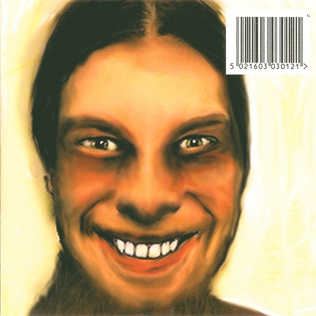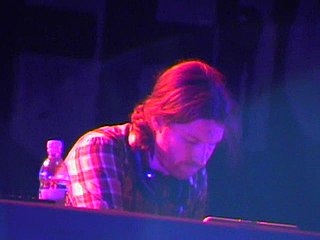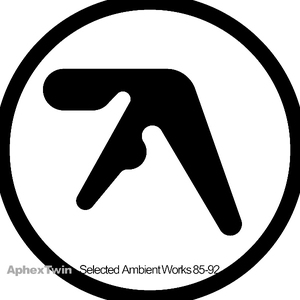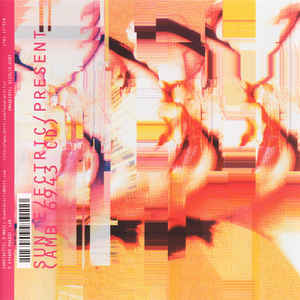
Ambient music is a genre of music that emphasizes tone and atmosphere over traditional musical structure or rhythm. It is often "peaceful" sounding and lacks composition, beat, and/or structured melody. It uses textural layers of sound that can reward both passive and active listening and encourage a sense of calm or contemplation. The genre is said to evoke an "atmospheric", "visual", or "unobtrusive" quality. Nature soundscapes may be included, and the sounds of acoustic instruments such as the piano, strings and flute may be emulated through a synthesizer.
Intelligent dance music (IDM) is a style of electronic music originating in the early 1990s, defined by idiosyncratic experimentation rather than specific genre constraints. It emerged from the culture and sound palette of electronic styles such as ambient techno, acid house, Detroit techno and breakbeat; it has been regarded as better suited to home listening than dancing. Prominent artists associated with it include Aphex Twin, Autechre, Squarepusher, Boards of Canada, Amon Tobin, Higher Intelligence Agency, Telefon Tel Aviv, μ-Ziq, The Black Dog, The Future Sound of London, Mouse on Mars, Biosphere, Orbital and Luke Vibert.

...I Care Because You Do is a studio album by the electronic music artist and producer Aphex Twin. It was released on 24 April 1995 through Warp. Containing material recorded between 1990 and 1994, the album marked James's return to a percussive sound following the largely beatless Selected Ambient Works Volume II (1994), and pairs abrasive rhythms with symphonic and ambient elements. The cover artwork is a self-portrait by James.
Ambient techno is a subgenre of techno that incorporates the atmospheric textures of ambient music with the rhythmic elements and production of techno. It was pioneered by 1990s electronic artists such as Aphex Twin, Carl Craig, The Orb, The Future Sound of London, the Black Dog, Pete Namlook and Biosphere.
Ambient house is a downtempo subgenre of house music that first emerged in the late 1980s, combining elements of acid house and ambient music. The genre developed in chill-out rooms and specialist clubs as part of the UK's dance music scene. It was most prominently pioneered by the Orb and the KLF, along with artists such as Global Communication, Irresistible Force, Youth, and 808 State. The term was used vaguely, and eventually fell out of favor as more specific subgenres were recognized.

Incunabula is the debut studio album by English electronic music duo Autechre, released by UK label Warp on 29 November 1993, and again by Wax Trax! on 25 January 1994 in the United States.

Surfing on Sine Waves is a studio album by the musician and producer Richard D. James under the alias Polygon Window. James is better known as Aphex Twin. The record was released on 11 January 1993 through the label Warp. It entered the UK Dance Albums Chart at No. 2 on 23 January 1993. James' previous album, Selected Ambient Works 85–92, was then at No. 9 on the chart, and James briefly had two records in the Dance Albums Top 10 under different pseudonyms. The 2001 reissue edition includes the previously unreleased tracks "Portreath Harbour" and "Redruth School".

Ambient is the second studio album by American electronica musician Moby, released in August 1993 by record label Instinct.

Ambient 4: Isolationism is a 1994 studio album of new material by various ambient artists released on the Virgin Records label, part of its Ambient series. The compilation was issued as a double CD, packaged in a slimline case. It was compiled and features liner notes by Kevin Martin. It was the first in the series to be composed entirely of new, exclusive material.

Hot Trip to Heaven is the fifth studio album by British rock band Love and Rockets, released in 1994 on Beggars Banquet in the United Kingdom and American in the United States. Released after a five-year hiatus, the album saw the band drop their former gothic, alternative rock sound in favour of a hi-tech electronic, ambient direction, taking influences from ambient techno artists such as The Orb and Orbital, while retaining the band's psychedelic focus. The group were first intrigued in making electronic music at the start of the decade.

The Orb are an English electronic music group founded in 1988 by Alex Paterson and Jimmy Cauty. Known for their psychedelic sound, the Orb developed a cult following among clubbers "coming down" from drug-induced highs. Their influential 1991 debut album The Orb's Adventures Beyond the Ultraworld pioneered the UK's nascent ambient house movement, while its UK chart-topping follow-up U.F.Orb represented the group's commercial peak.

777 is the second studio album by English electronic music group System 7, originally released by Big Life in the United Kingdom in 1993. The album was released in the United States by Hypnotic Records in 1998, after having been unavailable in the country, and was later re-released through System 7 member Steve Hillage's A-Wave label in 2003.

Quique is the debut album by British music group Seefeel. It was released through Too Pure in October 1993. A predominantly instrumental record which utilises elements of both rock and electronic music, it blends styles including techno, dream pop, ambient, and dub. Guitarist Mark Clifford worked continually on tracks while other members either completed them or provided component ideas.

Eurotechno refers to the musical soundtrack by English group Stakker for their 1989 experimental short film of the same name. The original film was an avant-garde experiment and features rapidly shifting colourful computer graphics, reflecting the influence of rave culture. Although the visuals of the film were primarily the work of Stakker members Marek Pytel, Mark McClean and Colin Scott, the musical soundtrack was largely the work of Brian Dougans, later of The Future Sound of London. The 25-minute soundtrack was recorded using a Roland TB-303, and reflects the fast-shifting momentum of the film by incorporating fragmented elements of acid house, Chicago house and Detroit techno that shift after their brief appearances, thus contributing to an intricately layered style.

Richard David James, known professionally as Aphex Twin, is a British musician, record producer, composer and DJ. He is known for his idiosyncratic work in electronic styles such as techno, ambient, and jungle. Journalists from publications including Mixmag, The New York Times, NME, Fact,Clash and The Guardian have called James one of the most influential and important artists in contemporary electronic music.

Selected Ambient Works 85–92 is the debut studio album by the British musician Aphex Twin. It was released on 9 November 1992 through Apollo Records, a subsidiary of the Belgian label R&S Records. The album consists of ambient techno tracks recorded onto cassette reputedly dating as far back as 1985, when James was fourteen years old. On release it received widespread acclaim and entered the UK Dance Albums Chart at No. 6 on 26 December 1992.

The discography of European electronic music group the Orb includes seventeen studio albums, one live album, six compilation albums, four remix albums, four mix albums, two video albums, ten extended plays, fifteen singles and twenty-two music videos. Founded by Alex Paterson and Jimmy Cauty in 1988, the group's first release was the extended play Kiss EP, issued in May 1989. The single "A Huge Ever Growing Pulsating Brain That Rules from the Centre of the Ultraworld", which marked the group's first foray into the ambient house genre, was released in October 1989 on Adam Morris and Martin Glover's record label WAU! Mr. Modo Recordings. It was later re-issued by Big Life and peaked at number 78 in the United Kingdom despite sample clearance issues. Following Cauty's departure from the group, the Orb signed a long-term recording contract with Big Life and released their debut studio album The Orb's Adventures Beyond the Ultraworld in April 1991. It peaked at number 29 in the United Kingdom and has since been recognized as a seminal album of the ambient house genre. "Little Fluffy Clouds" and "Perpetual Dawn" were released as singles from the album.

Rave 92 is a DJ mixed compilation album compiled by Mark Arthurworrey and released on Cookie Jar Records, containing popular rave singles that had become popular in the United Kingdom in 1992. The compilation, the fifth and final rave compilation compiled by Arthurworrey and released on the label, aims to collect some of the year's biggest rave hits, although, as has been pointed out, Rave 92 also intends to "bridge across the gap between chart rave and the more obscure hardcore tracks." Released in November 1992, Rave 92 was well-received and a commercial success, reaching number 3 on the UK Compilation Chart. Several latter-day electronic producers, including Phaeleh, have cited hearing Rave 92 for the first time as the point they became interested in electronic music.

Present is the third album by German techno duo Sun Electric, released in November 1996 by Belgian label Apollo Records. The duo's first full-length studio album for the label, the album is a return to Sun Electric's more beat-oriented material and incorporates styles of dub, jungle, IDM, breakbeat and downtempo. The album artwork by The Designer's Republic features a manipulated image similar to artworks of Madonna, reflecting the melancholic, fractured sound of the album. Music critics greeted Present favourably, praising its inventive style, and some have since recognised the record as overlooked.
















